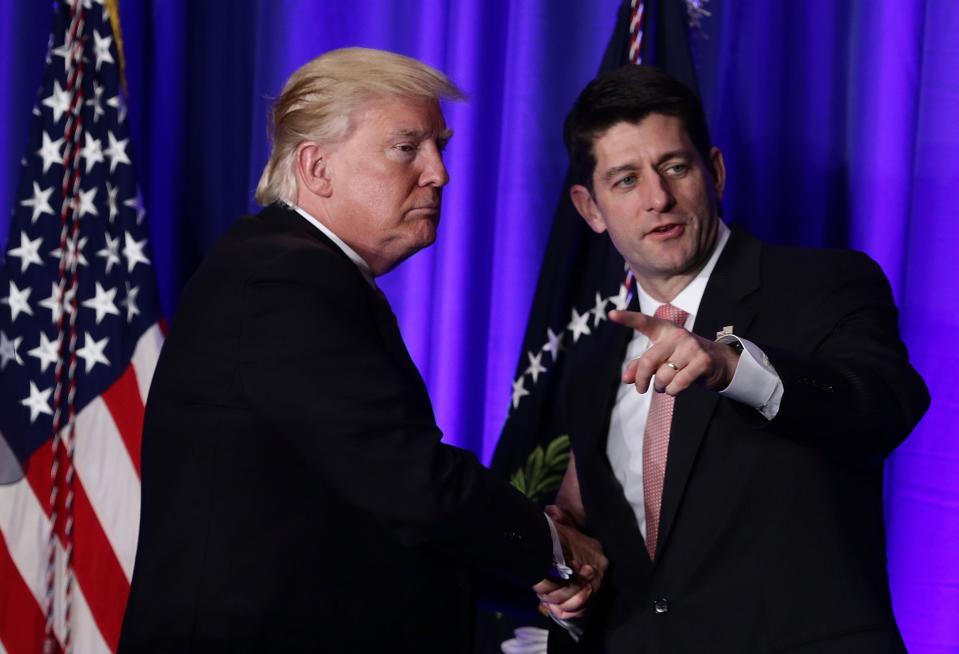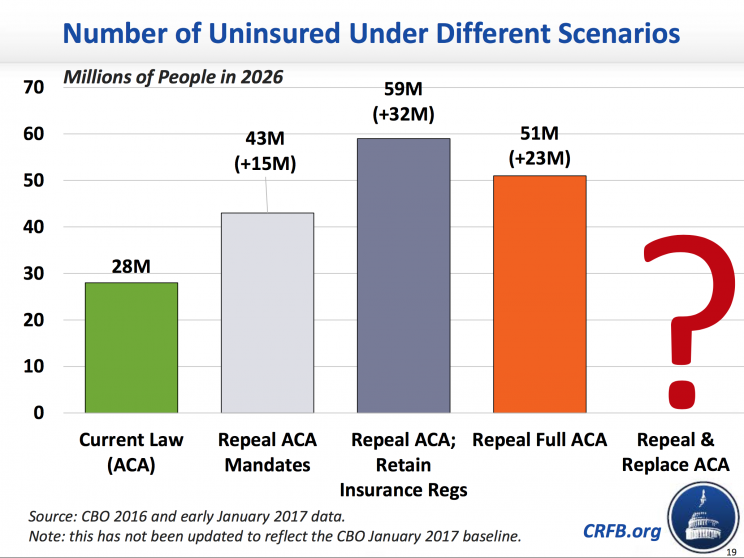Trump's Obamacare replacement may come long after Congress pulls the plug on it

During the presidential campaign, Trump – as well as Congressional Republicans – vowed to totally repeal and replace the Affordable Care Act.
As president, Trump is recognizing that, well, it’s “complicated.” It could take until “sometime into next year” until an ACA replacement is put through, Trump told Bill O’Reilly this weekend.
In the hours after his inauguration, President Trump signed an executive order giving the executive branch authority to waive fees, taxes, penalties, and other costs associated with the ACA. This laid groundwork to undo Obamacare’s individual mandate. But while Trump’s swift move was good optics, fulfilling a campaign promise of immediate action, the momentum to repeal Obama’s landmark legislation and replace it with something better has stalled.
Republicans are increasingly finding themselves in a position akin to a dog that’s finally caught the car, as closed-door recordings of concerned GOP lawmakers published by the Washington Post show.
After years of proposing alternative ideas, the time to put them to the test has arrived – but there’s been little consensus on how to proceed. Every option has its flaws and many lawmakers worried that things were moving too quickly, before a better solution has been thought up. (Democrats, on the other hand, do not believe the Republican plans will offer something better, and instead favor improving the existing law.)
“We’re telling those people that we’re not going to pull the rug out from under them,” Rep. Tom MacArthur (R-NJ) said in the audio recording published by the Post. “And if we do this too fast, we are, in fact, going to pull the rug out from under them.”
Others echoed political concerns as well as concerns for people who would be negatively affected by the changes.
“We’d better be sure that we’re prepared to live with the market we’ve created,” said Rep. Tom McClintock (R-CA.). “That’s going to be called Trumpcare. Republicans will own that lock, stock and barrel, and we’ll be judged in the election less than two years away.”
While Trump may now be on the side of slower, more deliberate legislation (probably not by choice), Speaker Paul Ryan has said Congress is still poised to go ahead with the reconciliation bill that will defund the ACA, sending Obamacare into a death spiral, as the Kaiser Family Foundation’s Larry Levitt and others have noted.
Another death spiral could happen from the repeal of the mandate, or even a lack of enforcement, something that could tank the insurance market, Sen. Rand Paul (R-KY) has warned. Paul, who advocates for a simultaneous repeal and replace, voted against a budget resolution that paves the way for a defunding reconciliation bill.

The lack of consensus as to what will happen and when has provided much consternation for the budget hawks in the bipartisan Committee for a Responsible Federal Budget, which found that a full repeal would cost $350 million as the taxes that paid for it would be gone. A partial repeal would still be costly, as would various repeal and delay strategies.

While Congress may vote to repeal soon, the actual stripping of funds may be delayed until something workable has been enacted, according to a Medium post by Sen. Lamar Alexander (R-TN). ”The repeal of Obamacare finally will become effective when our reforms are implemented and we have concrete, practical alternatives,” he wrote. In other words, the “repeal” vote this spring might not immediately defund the ACA.
Depending on what “concrete, practical alternatives” emerge, this delay could help the 23 million people who will become uninsured in a repeal avoid a gap in coverage. At the same time, it may not be good news for all the people who didn’t sign up for health care under the ACA, perhaps assuming it would be gutted immediately.
Not immediately defunding the ACA may be prudent, but Congress will likely still be voting to kill it before any alternative has been brought forth, which is tantamount to voting blindly. So far, the Trump administration has been vague about what Trumpcare will look like—as he was on O’Reilly—leaving all parties in the dark as to what the plan will look like and how it will tackle the myriad issues at play. But the pressure is on for it to be better and cheaper than Obamacare.
Ethan Wolff-Mann is a writer at Yahoo Finance focusing on consumer issues, tech, and personal finance. Follow him on Twitter @ewolffmann.
Read more:
President Trump’s predecessors learned about tariffs the hard way
33 labor complaints just dropped in front of Trump’s labor secretary pick
51% of all job tasks could be automated by today’s technology